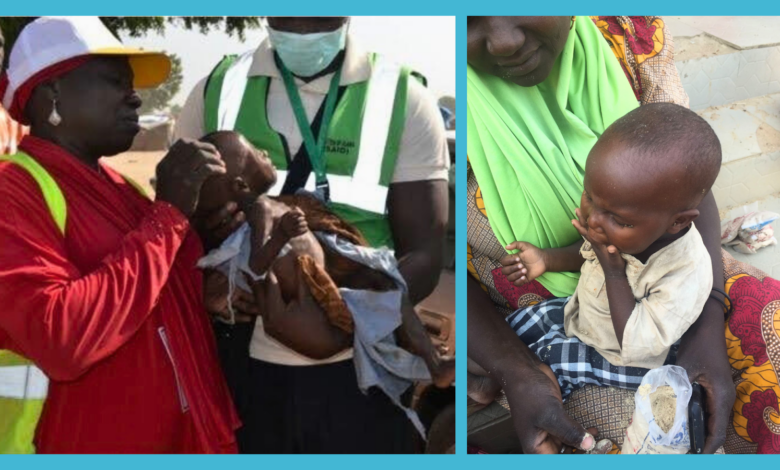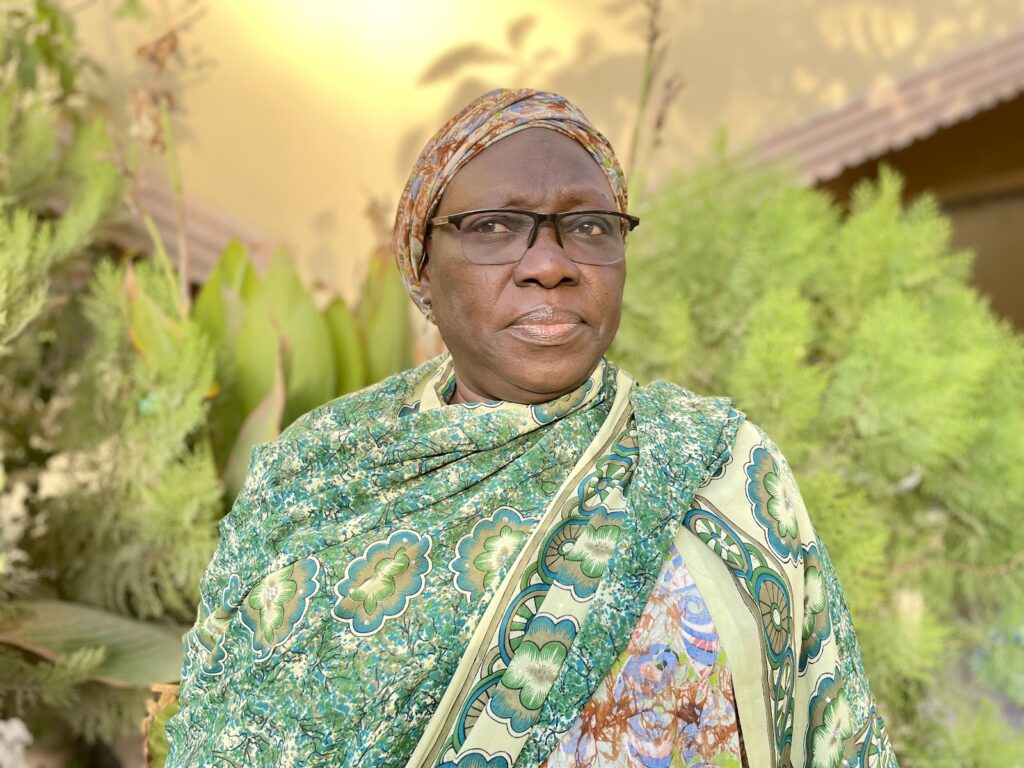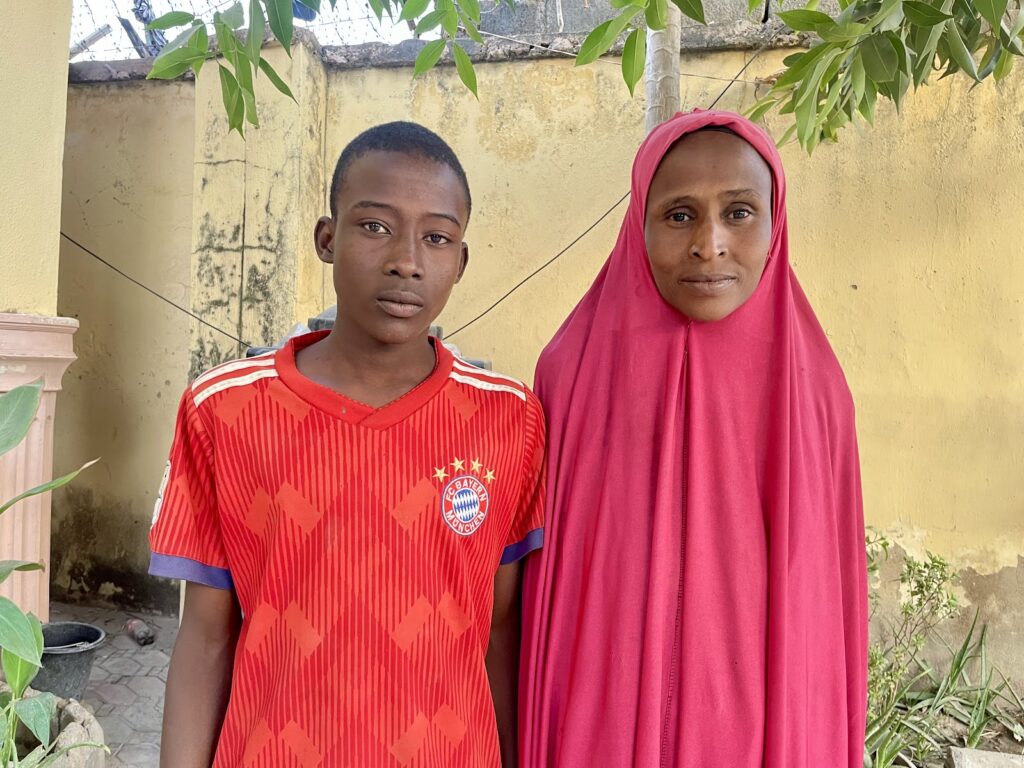Breathing Life Into Malnourished Children Using Local Knowledge, Products — One NGO’s Blueprint
“Lack of proper diet in the food displaced communities consume is a major cause of malnutrition,” Aisha said. She believes she has found just the right solution, too: locally developed ready-to-use therapeutic food.

Aisha Mohammed Maidala, a nutritionist and dietician, observed an unprecedented rise in malnutrition cases among displaced communities across the Lake Chad region, especially in Borno state, North East Nigeria. She had visited displacement camps in Maiduguri, the state capital, and seen large numbers of children grappling with malnutrition. So, three years before her retirement, when she started thinking about what to do after leaving the civil service, she knew she had to do something about it.
In 2017, Aisha founded the non-profit Gender Environmental and Nutritional Care (GENC) to tackle this problem, which she describes as a killer disease. Her metaphor is spot-on. According to the United Nations Children’s Fund (UNICEF), 2,400 children under the age of five die every day in Nigeria due to malnutrition. “As a nutritionist, I knew this was caused by food crises, which is common amongst the displaced families,” Aisha said.
Seeing parents trying to save their malnourished children at IDP camps broke her heart.
“I felt sorry for them. The parents are poor. They could not access balanced diets nor provide healthy food for their children. Mothers, too, experience low counts during lactation [the period of breastfeeding] because they are not eating enough healthy food, and this affects their babies.”
Now, Aisha is saving many children in the region from the claws of malnutrition by producing ready-to-use therapeutic food (RUTF) products, which she calls NISAJ. She then distributes this to affected children and mothers in displacement camps and host communities in the area.

“The locally made Ready-to-Use Therapeutic Food is a very effective and easy-to-use dietary product. The product is administered to a child who is suffering from acute, severe or moderate malnutrition,” Aisha explained.
She is able to pull this off, she observed, thanks to 35 years of experience as a nutritionist and dietician. She has several degrees in the area, including a post-graduate diploma in Environmental Management and a master’s in Public Health Nutrition. She is currently the state coordinator of Civil Society-Scaling Up Nutrition in Nigeria- (CS-SUNN).
Her organisation, GENC, identifies ailing children during nutrition intervention outreaches, registers them, and administers the product based on the severity of the condition. They then follow up for at least four to six weeks.
Aisha said their patients respond quickly to the treatment depending on the severity of the disease. “We encounter some cases at its severe stage, and this is the only time it takes a longer period for an affected child to recover.”
One of GENC’s beneficiaries was Awana Ali, a toddler who was malnourished. His parents encountered the non-profit in 2018 during one of its women empowerment sessions at the Muna displacement camp on the outskirts of Maiduguri. After the session, where women were taught how to get a healthy diet using the food available to them, his mother brought Awana forward for examination.
“The child was emaciated, very sick and needed urgent medical attention. I gave the mother the NISAJ local RUTF and some essential aid that the child needed,” Aisha recalled.
Awana responded well and recovered from the illness after about a month of treatment. He gained weight and became full of life once again. When Aisha visited the IDP camp two months later, she met the boy frolicking in the open space, and it was he who went to fetch his mother.
“The child could have died because of the severity of the disease. Our assistance was crucial when we discovered him. There are so many out there, but we can’t reach them because of lack of awareness,” Aisha told HumAngle.
According to her, GENC has produced and distributed over 350,000 sachets of NISAJ since 2018. The organisation has also conducted outreaches to IDP camps and host communities across different parts of Borno, including Bama, Dikwa, Jere, and Konduga local government areas. Some of the camps they have visited are Muna Garage, El-Miskin, Bakassi, Dalori, Nimeri Kabar Maila, Teachers Village, Garba Buzu, Gida Dubu, and Shuwari 5.

Another beneficiary was Fatima Hajju Aliyu, 38.
She remembered how her son, 12-year-old Hussaini, survived severe malnutrition in 2018 thanks to GENC. Hussaini was sick, and neither Fatima nor her husband could tell what was wrong with him. They tried traditional medicine and prayers, but the boy only grew weaker and slimmer. “He turned into a skeleton. We concluded that he was bewitched and applied all sorts of traditional herbs and visited several traditionalists for help,” Fatima said.
Hussaini’s father was a painter who rarely got a job, and his mother was a petty trader. They could not afford decent meals or conventional healthcare. Once, they gathered a small amount of money and took him to the hospital. “But the doctor told us to leave because they couldn’t treat my son without money paid for medical services,” Fatima said.
They were forced to go back to herbs, and Hussaini’s condition only got worse.
“My son was not breathing well; he pooped on me; he couldn’t sit. He was bones without flesh; it was like I was carrying a dead body,” Fatima narrated.
It was in that period of desperation a neighbour recommended Aisha Maidala’s service. She received NISAJ and some foodstuff, including noodles, milk, sugar, and cereals, from the non-profit. After some weeks, Hussaini recovered. “He became so well that he started cooking for himself.”
Hussaini, 17, who now works as a labourer in the block industry, said Aisha saved his life and he is proud of her work. “I pray that God assists her as she assists sick people like me.”
Hussaini has become the family’s breadwinner, supporting his mother and siblings since his father died a year ago.

Aside from distributing therapeutic food, GENC also donates food and non-food items to people in need. The organisation engages in nutritional counselling, dietary skills empowerment, and close monitoring of patients who were administered the RUTF.
“We teach the parents how to prepare simple dietary packs from the food around them. We teach them how to eat well and the kind of classes of food they need for a healthy body and nourishment of their children. Above all, we monitor the child closely for any complications that may cause admission to the hospital,” Aisha said.
According to her, child malnutrition could also be caused by the breastfeeding mother who doesn’t have a proper diet, and this affects both the quality and quantity of breast milk available to the child.
“Lack of proper diet in the food displaced communities consume is a major cause of malnutrition. Most of the time, a displaced family only has access to carbohydrates and that alone cannot cater to what the body needs for nourishment. Mothers and caregivers don’t have enough knowledge to utilise the available food around them to balance the diet of the food they consume. This is why GENC is supporting women with both the locally made RUTF and also empowering them on how to use local food around them to balance their diet.”
She explained that people do not need much money to eat healthy food, and they can have a balanced diet through better understanding and subsistence farming.
Food insecurity is worsening the health crises among people in northeastern Nigeria who are displaced by the Boko Haram insurgency. The suspension of humanitarian aid to thousands of IDPs and the closure of camps in Maiduguri by the state government has exacerbated the already critical situation for so many reasons. Resettled communities have complained that they could not access their farmlands because of fears of attack by non-state actors.
Last year, we found that the displaced community at Shuwari, a village in the Mafa area, consumed biri gamda, a form of animal feed made from leftovers of cooked maize, rice, and millet.
“It is disheartening that we witnessed a time when people are depending on such a kind of food to survive,” Aisha said about the development. “Biri gamda is one class of food, and mainly it is a processed carbohydrate. You need other classes of food, like vitamins, minerals, protein, and so on, to make a healthy diet.”
Unfortunately, Aisha has had to dial back on the non-profit’s activities because of a dip in resources since her retirement. She believes that with support from development and humanitarian stakeholders, people like her can do more to fight malnutrition in conflict-affected areas using local solutions.
“The conflict is doubling the health crises which put children at the centre as victims. Producing local products like what GENC is doing is a great solution to the crises and a good replacement for importing,” she argued.
“The RUTF I produce is reliable, cheap, and accessible in our local environments. Many have used it to cure malnutrition, and it has been effective. But I cannot do it alone; I need support so that I can continue with the production and reach out to local communities that are still fighting the killer disease.”
Support Our Journalism
There are millions of ordinary people affected by conflict in Africa whose stories are missing in the mainstream media. HumAngle is determined to tell those challenging and under-reported stories, hoping that the people impacted by these conflicts will find the safety and security they deserve.
To ensure that we continue to provide public service coverage, we have a small favour to ask you. We want you to be part of our journalistic endeavour by contributing a token to us.
Your donation will further promote a robust, free, and independent media.
Donate HereStay Closer To The Stories That Matter




